'Inspire Fanatics' and 14 Other Lessons From Franchise Pros Make people think they're in heaven.
This story appears in the January 2017 issue of Entrepreneur. Subscribe »

Launching a successful franchise is no easy task. In fact, it takes networking, marketing, planning, executing and so much more -- but it's all worth it in the end. Check out the tips from these 15 successful franchisors.
Related: Should You Franchise? How to Decide.
Lesson 1: Consider a product that inspires fanaticism.
Randy Giandonato and Rick Kromer, owners of three Beef Jerky Outlet (#72 in the Franchise 500) franchises in New Jersey
Kromer: People come into the store, they drop to their knees, they say, "Oh my God -- this is the greatest place on Earth! I'm in heaven!" They're crazy.
Giandonato: You'd think we'd get mainly guys, but we get all kinds of people. Our store in Atlantic City gets high rollers walking in with their wives with diamonds on their fingers, and families who are at the outlets shopping.
Kromer: It's not uncommon for a group of women to come in from the casino and spend a ridiculous amount of money on beef jerky.
Giandonato: We've converted a lot of people.
Kromer: One couple said, "We were watching TV and you came on, and my wife and I looked at each together: "You thinking what I'm thinking? Yeah: road trip … this weekend.'" They didn't give it a second thought. They drove an hour and a half to go to a beef jerky store.
Entrepreneur: Ever get any weird requests from these jerky junkies?
Kromer: I've had someone ask if we sold vegetarian beef jerky. And I was like, let's analyze what you're asking me here.
Giandonato: It's a dried piece of tofu, is what it is.
Kromer: Right, we have some of it on the wall next to our unicorn jerky.
2. Call the most famous people on Earth to work the counter, then reap the rewards on social media.
Rick Wetzel, founder of Blaze Fast-Fire'd Pizza (#46), in which NBA legend LeBron James is an investor
LeBron James is not a passive investor. He will randomly visit restaurants. The other day up in Columbus, Ohio, he went to a restaurant with the whole Cavaliers team; he took them all out to lunch. And back in March, he was in town and had some time off between games, so we got together and cooked up this goofy idea of him posing as a new employee named Ron in the Pasadena store. We put hidden cameras all over the restaurant, and he came in and put on a uniform and got behind the line. He just started having a hoot, seeing if customers would recognize him. Those kinds of touchpoints are priceless. They get picked up on social media, and then they go viral. We really don't have to do anything.
We built the brand with a huge focus on social media. That's where we spend all our time. If you ask us a question in cyberspace, we're going to answer your question in cyberspace. We use these aggregators that round all that stuff up for us every day and put it into charts and graphs, so when we come in in the morning, we can read them and then get back to people or understand where we might have an issue or where we're doing really well. It's a really interesting new way to communicate with guests, and it's really fun.
3. Recognize the awesome power of a catchy name.
John Ferracuti, general manager of Bin There Dump That (#236), a residential-friendly Dumpster company
So the founder of the company is a fellow named Mark Crossett. One night, over a few pops at the local pub, he came up with the name Bin There Dump That. It stuck. But I gotta tell you, all kidding aside, it's a name people remember. I've been at those networking events where they give everyone 20 seconds to stand up and explain who they are. And I've literally stood up and said, "Hi, I'm John, and I'm with Bin There Dump That." And I just sit down. That's it. That's all I gotta do.
4. Lock down the youth vote.
Jared Downs, co-owner of seven Dippin' Dots (#382) franchises down the Eastern Seaboard and in the Midwest
It's kinda nuts when you see a kid screaming up and down until their mom or dad buys them one. They don't stop screaming. It's kinda cool to see.
5. Do it all. Don’t be afraid to get your hands dirty.
Kevin Adams, owner of a Culver's Restaurant (#20) in Sierra Vista, Ariz.
Culver's has a 16-week training program for new franchisees. You spend 12 weeks working in one of the family-owned restaurants in Wisconsin, along with some classroom training. Then after those 12 weeks, each new franchisee is required to go to two new stores and be part of the support team for those stores' opening training week and first week of operations. Then your team has six days of training before your own store opens. The opening sticks out most in my mind. It was just so intense. We were working 16-hour days. It was a big blur. I'm still in the restaurant at least five to six days a week. I work the drive-thru window, I take orders, I clean tables, I work the grill. I do it all.
6. Be prepared to get some funny looks as you work toward your goal.
Helen McDonagh, regional developer and franchise owner for Massage Envy (#17) in Los Angeles County
There are many funny stories when you run a massage business. When we first started in the Los Angeles market in 2004, if you went to the city and said you wanted to open a massage establishment, they'd go, "Who are you, Heidi Fleiss?" And my name is Helen.
So it'd be, "Heidi? No, I'm Helen; this is a legitimate business." The whole idea of a place where you went to get regular massages -- and just massages -- was unheard of. Back then, the people who got massages went only to either really shitty places or very high-end places.
The tide started to turn probably in the past three or four years. As planners and city attorneys started to see our brand pop up in shopping centers, they'd say, "Oh! This is legitimate." They'd go, "Oh, Massage Envy? You guys are OK. We know you're one of the good places."
For us, it's about making massage part of your health-and-wellness lifestyle. We had a lady with severe back issues who'd never been able to bend down and touch her toes; she was scheduled for some type of back surgery. She was seeing a particular therapist who we consider a miracle worker. After a couple of months, she bent down and touched her toes right in the lobby and started to cry. The regular massage really changed her life.
7. Remind customers that your national chain is also a mom-and-pop.
Ken Weckesser, co-owner of five Mosquito Joe (#26) franchises in southern Maryland
For the first year, my wife, Eileen, was basically the voice of our company. She spoke to every customer personally, and she let them know that we're a local franchise, that we're based in Maryland, this is our second year, etc. Anyone who had any questions, comments, concerns -- whatever -- was able to speak to Eileen directly.
Related: Two Years Ago, This Ruling Rocked Franchising To Its Core. Now Everything May Change Again.
8. Figure out how your community prefers to communicate.
Austin Schneeweis, owner of six Merry Maids (#33) franchises in Greater Philadelphia
We just implemented a texting service. The customers love it. We usually reach out to them during the day, during business hours. But with our new texting system, they can now text us to let us know, "Wow, the cleaning went really well. I really liked so-and-so who came in today; they did a great job." We're getting a lot more response and a lot more interaction with our customers than we had historically, just due to adopting new technology.
9. Ask: Is there a me in team? Give and take and give.
Dan Parker, owner of two franchise territories for Right at Home (#51) in Northern California
When I was looking into franchise opportunities, Right at Home gave us a list of franchisees we could call and talk to. It was really outstanding. I think I spoke to six different folks and came to know all of them later on. They were very candid and open about the pros and cons of the business. I felt really good about the availability of people who were wearing the shoes that I was trying on.
And I still do. These days, I routinely get phone calls from new owners. We work closely together. We refer one another; we support one another. We have different groups on email where we talk back and forth about questions. They do a great job with that.
10. Be prepared for a special kind of due diligence if you’re going to work with schoolkids.
Emily Breton, co-owner of a Bricks 4 Kidz (#239) franchise -- which runs Lego-themed events -- in West Madison, Wisc.
"We work with school districts, and each district has its own policy. Starting out, that's the biggest difficulty I had. In some places, you have access to the schools -- you're able to send out flyers that you're going to be doing programming. Other communities don't allow that. Going into this business, I would've liked to have had a better idea of that. "
11. Just because it’s easy to order a burger doesn’t mean it’s easy to run a fast-food joint.
Nick Shurgot, president and CEO of Saddle Peak, which owns and operates 37 Hardee's restaurants (#16) in Arkansas, Mississippi, Tennessee, Georgia and South Carolina
People turn up their noses at fast food, but it's a complex business. You have a ton of employees that tend to be a little bit younger and new to the workforce, so you've got issues with no-call-no-shows, and you've got to train younger folks to engage with guests, deliver customer service, deal with complaints and stuff like that. And then you've got equipment that can break down, and massive deliveries of food twice a week. In the end, your typical sales-per-man-hour metric is around $38 to $45. Compare that with gas stations and grocery stores, where sales per man hour are between $400 and $700. It's just a very labor-intensive industry.
So, if I had a suggestion, I'd say if you're going to get into fast-food franchising, it's best to do it with some amount of scale. You know, four, five or six restaurants [Shurgot started with eight], where you can have a district manager with history in the operations piece who can help you. If you're new to this and you're trying to get acquainted with how to run a good operation, plus manage the finances and the labor and all the things an owner has to do, while also trying to maintain food costs and hire the right folks -- it just becomes too much.
12. Manage unreasonable beefcake expectations.(HINT: free coffee helps.)
Keven Elwood, owner of a College Hunks Hauling Junk (#166) franchise in Colorado Springs, Colo.
I retired from the military literally just a few months ago. And while I was in the military transition, where you have one year left of service before you retire, I was interviewing a bunch of franchises last summer. My career coach was like, "Do not laugh, do not shun this: College Hunks Hauling Junk." I was like, "Absolutely not. There's no way I'll buy a company named College Hunks. It's not gonna happen."
Now I'm about six and a half months in, and I can say it really helps with brand awareness.
"H.U.N.K.S." stands for "Honest. Uniform. Nice. Knowledgeable. Service." So it's more of a service promise than a muscle promise. But there are adverse reactions. There are men who are way too manly to buy from College Hunks, and they'll say as much. And we definitely have some women out there asking, "Where are the guys in the tank tops and short shorts?" because I have people on my rolls who are well into their 30s. But then they fall in love with the fact that we bring them a cup of coffee and really go the extra mile.
13. When it comes to marketing, know your audience well.
Dave Barksdale, owner of three Pet Supplies Plus (#49) franchises in Texas
Early on, we did a lot of the mail-outs and things that worked really well for franchises in other parts of the country, but for whatever reason, we did not seem to be reaching many people in the San Antonio area. I was skeptical about airing ads on television, especially for what it cost, but we tried it. Then we took a survey of people coming in, and more than half of them said they saw our commercials on TV. That was the reason they stopped by. So we started focusing a little more on the airwaves to get the word out in San Antonio.
Now, for our Austin location -- I'm still not sure how that's going to work. We're working a lot with Facebook, emails; we developed a free app with everything we want to send out -- all the coupons that corporate does for us, all our advertising, everything will come through that app. We're going to do a lot of that. It appears everyone there carries a smartphone, so we're going to try marketing a great deal that way. About six months from now, I'll let you know how it works.
14. Never treat your community like a mere revenue source.
Jennifer and Chris Purcell, owners of a Firehouse Subs (#15) franchise in Elizabeth City, N.C.
Jennifer: When we started researching companies, Firehouse stood out because it was founded by firemen and for its public safety foundation, which gives nonmatching grants back to local police, fire, EMS and first-responder organizations for equipment that a lot of places don't have the budgets anymore to buy. Plus, Chris is a career firefighter, and he used to eat at the original location in Jacksonville, Fla.
Chris: We've given four different rounds of donations through the foundation, totaling almost $95,000. To give back to the community in an economically depressed area -- to be able to help local volunteer fire departments, police and EMS -- has been our biggest accomplishment.
Jennifer: We also feed the local football and basketball teams before games.
Chris: I'm the chairman of the board for the local Chamber of Commerce, Jennifer is on the board of directors for the local Red Cross chapter, I'm a member of the county economic development commission. And we're both involved in children's organizations and PTAs.
Jennifer: Giving back feels good. Your community appreciates it, but they also give back to us -- they patronize us -- so it's a win-win situation. As an entrepreneur, you need to be involved in the community.
Related: Top 2017 Franchises By the Numbers (Infographic)
15. Harness the power of historically neglected demographics.
Brian Weston, president of Restaurants of America, which owns 19 Hooters (#202) locations in New Mexico, Arizona and Colorado, as well as the Mall of America
I'll get right down to it: Some of the things people have heard about Hooters girls are not really true. The Hooter girl is a much higher-quality individual than they anticipate. We don't allow exposed tattoos, the amount of jewelry is very limited, the uniform is a lot more conservative than people assume. We teach the girls the service standards they would learn at any restaurant.
And the Hooters demographic has changed immensely. We were at one time very male-dominated; now we're much more diversified. Men, women, families, kids. We're more socially acceptable today than we've ever been. People come in, they see a nice-looking bar, a great TV package. And the menu has expanded.
I just had my sixth-grade soccer team in for their end-of-season party. For a lot of them, it was their first time in there. The parents were taken aback by how sweet the girls were, how easily they worked with the kids. At the end, we did a team photo with a bunch of the girls. Before you know it, it's plastered all over Facebook. It's the cheapest marketing, I'll tell you.
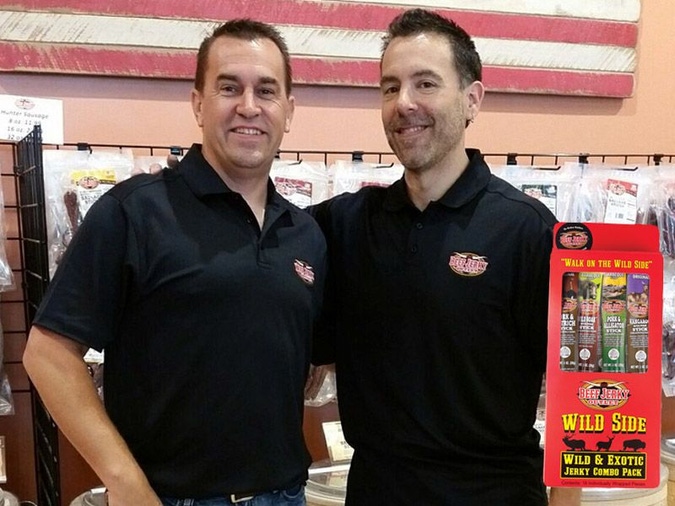
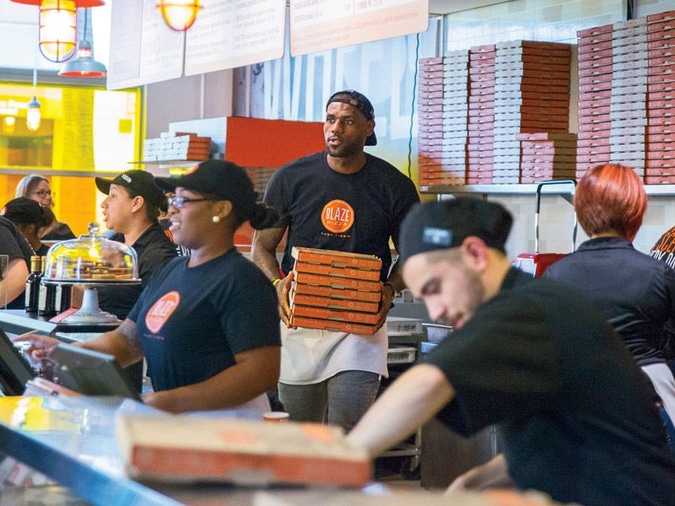 Blaze Pizza
Blaze Pizza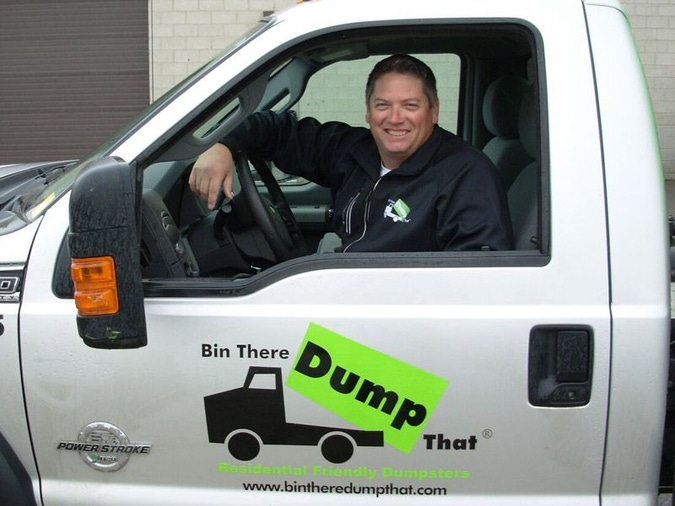 Bin There Dump That
Bin There Dump That Dippin Dots
Dippin Dots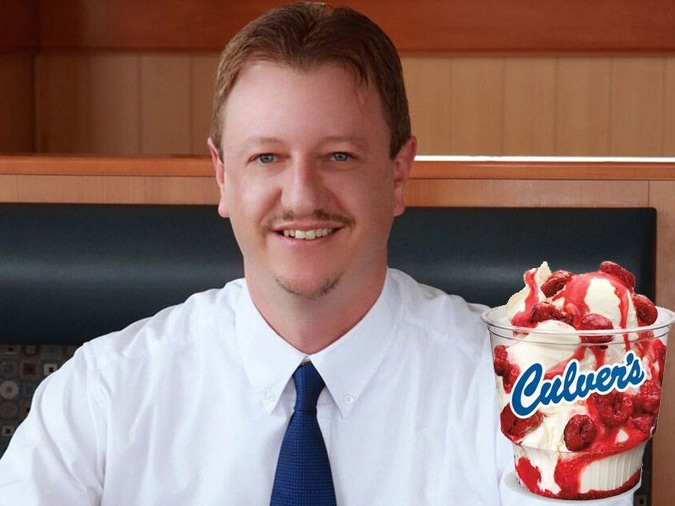 Culver Franchising System, Inc.
Culver Franchising System, Inc.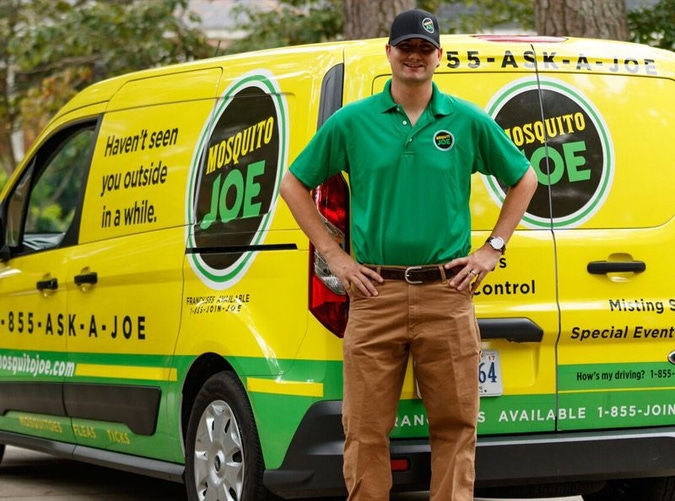 Mosquito Joe
Mosquito Joe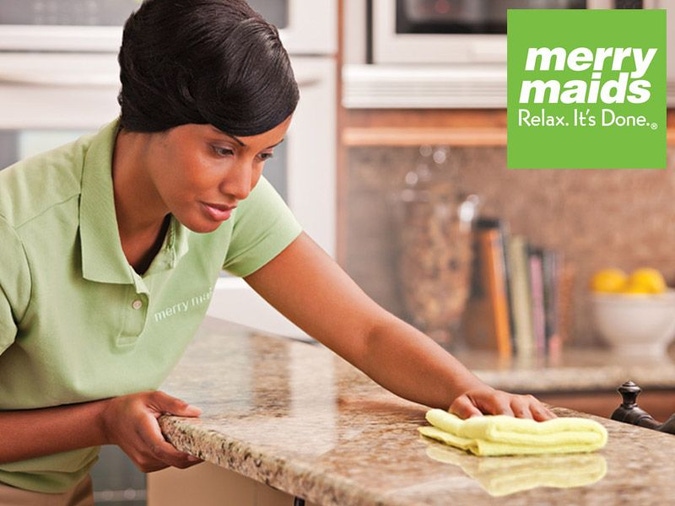 Merry Maids
Merry Maids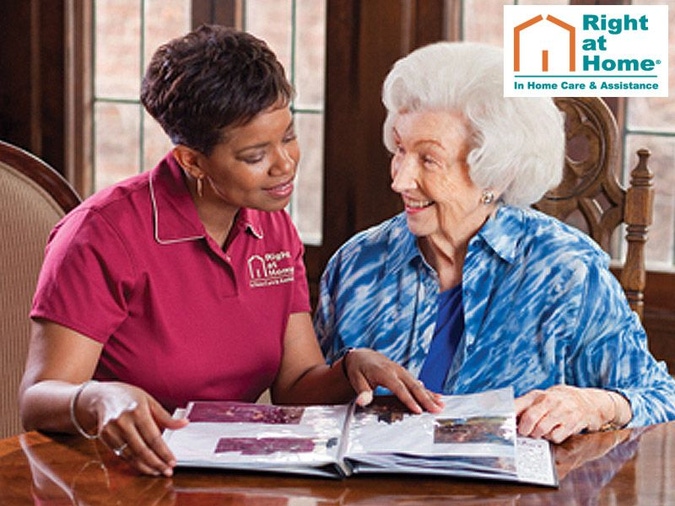 Right at Home
Right at Home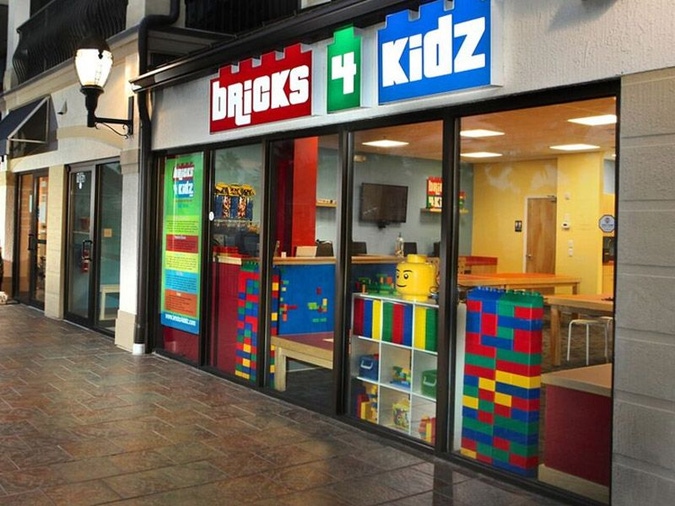 Bricks 4 Kidz
Bricks 4 Kidz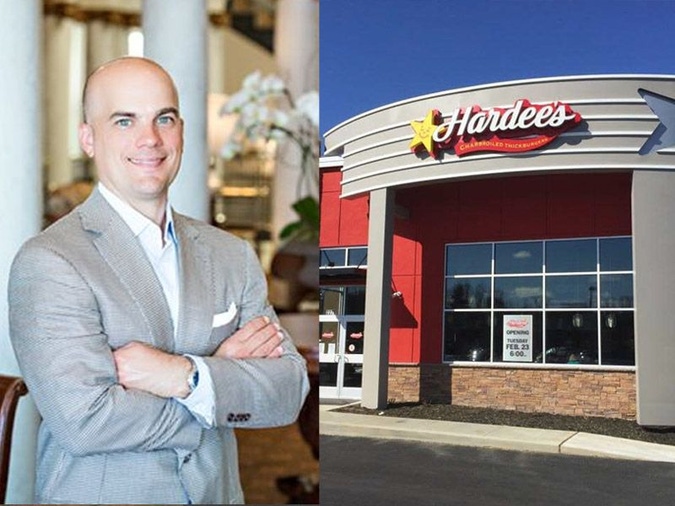 CKE Restaurants
CKE Restaurants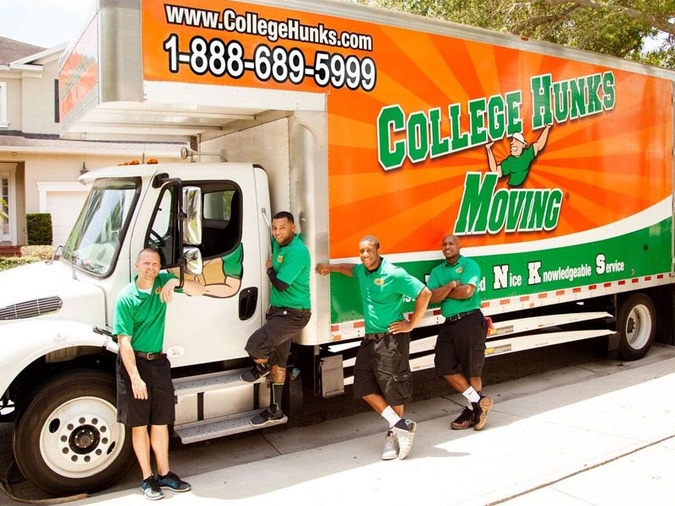 College Hunks Hauling Junk
College Hunks Hauling Junk Pet Supplies Plus
Pet Supplies Plus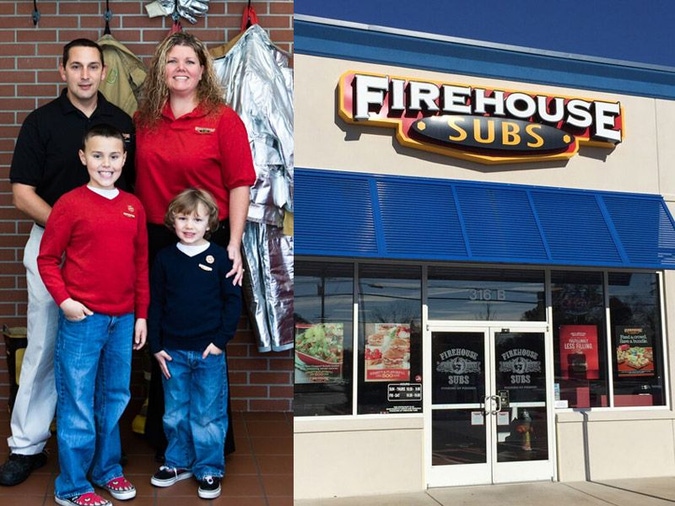 Firehouse Subs
Firehouse Subs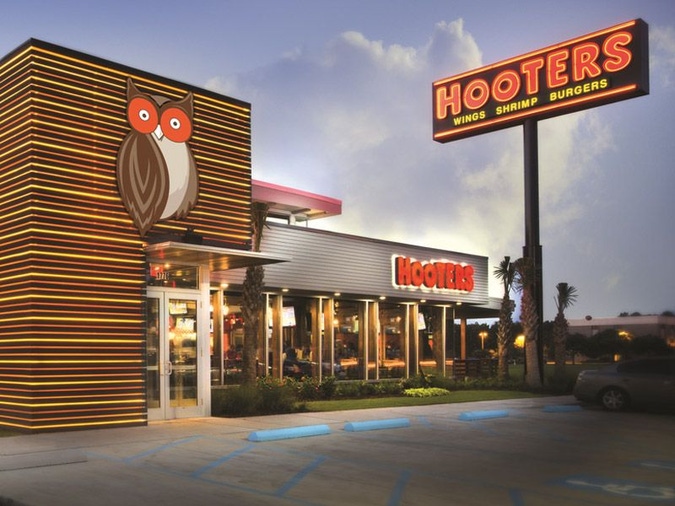 Hooters
Hooters








